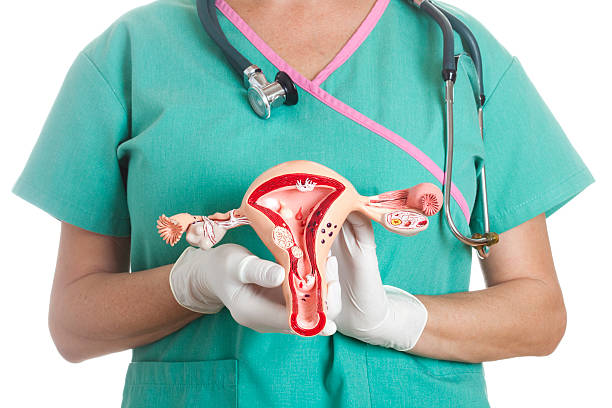Make an Appointment
The cervix is the lower portion of the uterus, an organ of the female reproductive tract. It connects the vagina with the main body of the uterus. The cervix is distinct from the uterus, and hence we consider it as a separate anatomical structure. So the question arises what is cervical cancer? It is a malignant tumour of the cervix, the lowermost part of the uterus.
Cervical cancer
starts in the cells lining the cervix, the lower part of the uterus. The cervix connects the body of the uterus is the upper part where a fetus grows to the vagina which is the birth canal. Cancer starts when cells in the body begin to grow out of control. Symptoms include bleeding in between periods and after sexual intercourse. Foul-smelling white discharge and low back pain or lower abdominal pain may also occur. In some cases, there may be no symptoms.
The cervix is made of two parts and is covered with two different types of cells. The endocervix is the opening of the cervix that leads into the uterus. It is covered with glandular cells. The exocervix or ectocervix is the outer part of the cervix that can be seen by the doctor during a speculum exam. It is covered in squamous cells. The place where these two cell types meet in the cervix is called the transformation zone. The exact location of the transformation zone changes as you get older and if you give birth. Most cervical cancers begin in the cells in the transformation zone.
Cells in the transformation zone do not suddenly change into cancer. Instead, the normal cells of the cervix first gradually develop abnormal changes that are called pre-cancerous. Doctors use several terms to describe these pre-cancerous changes like dysplasia. Mild dysplasia is a condition where not much of the tissue looks abnormal, and it is considered the least serious cervical pre-cancer. Severe dysplasia is a condition when the tissue looks abnormal; it is the most serious pre-cancer.
Although cervical cancers start from cells with pre-cancerous changes, only some of the women with pre-cancers of the cervix will develop cancer. For most women, pre-cancerous cells will go away without any treatment. But, in some women pre-cancers turn into true or invasive cancers. Treating cervical pre-cancers can prevent almost all cervical cancers.
There is always some risk if you have developed pre-cancerous changes, so it is advised to visit the doctor. Cancer is a fatal disease and if not cured on time it could lead to the death of the person. The early the treatment happens, the better it is for the patient. There are various ways in which a person can be cured by it. Surgery, radiation and chemotherapy are some of the proven methods.


12 Comments
Kara
Hi to everyone, the contents present at this site are in fact awesome for people’s knowledge, well, keep up the good work fellows.
Pingback: World Brain Tumour Day | Sujata Birla Hospital
Pingback: What Is HPV and How Do You Get It? | Sujata Birla Hospital
Pingback: What Is HPV and How Do You Get It? – Sujata Birla Hospital
Marjorie Flack
Thank you for writing about this topic. It helped me a lot and I hope it can help others too.
Leann Moroles
You’ve been really helpful to me. Thank you!
Rey Botdorf
You helped me a lot with this post. I love the subject and I hope you continue to write excellent articles like this.
Giovanni Visaya
You’ve been very helpful to me. Thank you!
Trena Burnsed
It would be nice to know more about that. Your articles have always been helpful to me. Thank you!
Emilee Nale
Thank you for being of assistance to me. I really loved this article.
Minoo
Thank you for sharing these types of wonderful posts.
Trinity Hospitals
Your blog always provides such insightful content. Keep up the great work!